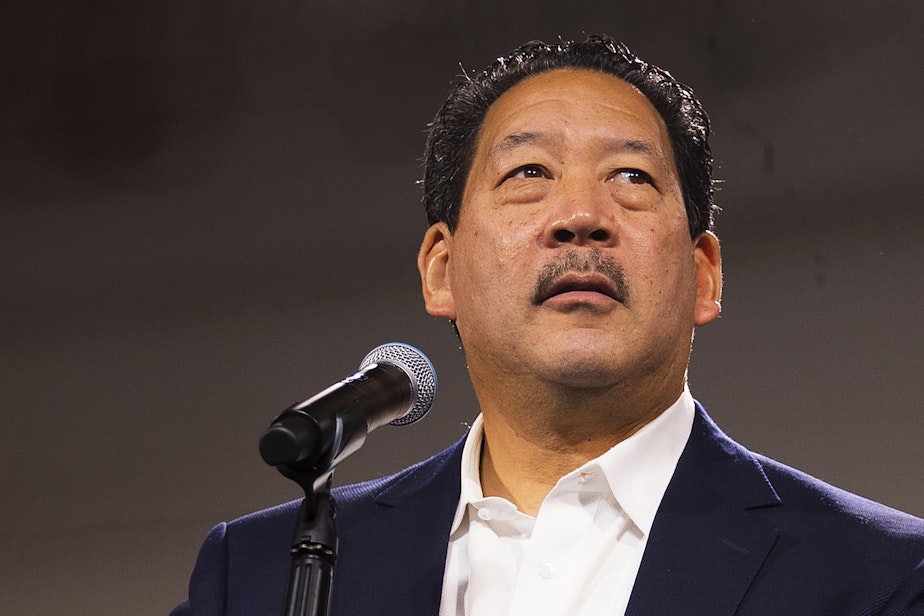How will Bruce Harrell tackle one of the toughest jobs in the country?

Can a mayor bring a city together? After two years in a pandemic, a year of reckoning racism in policing, and a surprising electoral result, incoming Seattle Mayor Bruce Harrell faces a tough task ahead.
Host Libby Denkmann, and Soundside listeners, put their questions to Mayor Harrell.
Don't lose patience, and don't lose faith. Two similar opening messages from two Seattle mayors. But what distinguishes Bruce Harrell from Jenny Durkan?
"His personal background is different, his style is different," says KUOW politics reporter David Hyde.
"Whether or not we're going to see big changes ideologically from the Durkan administration? I don't know. Are we going to see new initiatives? I think probably yes, because times change."
Bruce Harrell rose through last year's election by highlighting his upbringing in Seattle's Central District, as well as his track record serving on the Seattle City Council. But unity was a central pillar of his campaign, especially as the city comes to a polar boiling point over issues of homelessness, policing, and the Covid-19 pandemic.
For Harrell, his vision of unity is not synonymous with making everyone happy, but rather he intends to create an environment where people can feel safer, more educated, and more optimistic.
Sponsored
“I can’t make anyone happy,” Harrell told KUOW's Soundside. “What I’m trying to do is make rational, data-based decisions on my value systems.”
Soundside listeners weighed in on the conversation, asking Mayor Harrell their questions about:
"There are hundreds of people living on our sidewalks," one listener said. "Since you cannot provide them with decent housing, why don't you at least provide them portable showers, toilets and dumpsters, so they don't live in all this filth?"
Mayor Harrell says his administration's strategy will reflect the sanitation needs and hygiene needs of the homeless community.
"We're trying to get some quick wins to meet some emergent needs," Harrell says. "And we'll be as creative as possible."
Sponsored
"At the end of the day I have to also clean this city up," he says. "We have a lot of energy behind this."
Another listener asked if the mayor would end the eviction moratorium.
"Nothing in our policy will enhance or suggest that we want anyone to be on the street because they can't pay their rent because of Covid or other conditions of poverty."
If Harrell decides to not extend the eviction moratorium, the City Council's ordinance would open a six month period for tenants to "claim a defense against eviction for non-payment of rent if they can demonstrate financial hardship due to Covid-19."
Residential evictions in Seattle are banned through January 15, 2022.
Sponsored
Harrell says that his plan will require some work to determine the effectiveness of the eviction moratorium for tenants and landlords. He also affirmed that the plan will make sure both tenants and landlords can receive financial assistance.
"This is not just yes or no stuff."
Mayor Bruce Harrell spoke with Soundside host Libby Denkmann as his administration begins just its second week. Listen to the full conversation by clicking the audio above.





